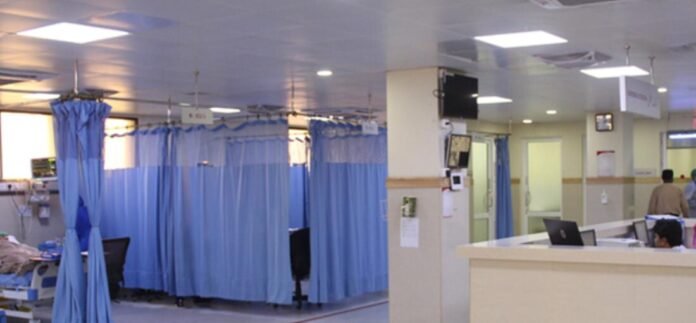The Punjab Healthcare Commission (PHC) has issued a health emergency alert for all private hospitals in the province amid the ongoing flood crisis.
According to the directive issued here on Thursday, the Commission has placed all private hospitals on Emergency Health Alert, effective immediately. It directs them to adopt urgent measures to safeguard patient care. “Maintain uninterrupted medical services during this critical period.”
The PHC directed private hospitals to reserve 35 per cent of their total bed capacity for flood-affected patients. “Provide them with free treatment.” The Commission has instructed to hospital to ensure the uninterrupted availability of essential medicines. “Ensure availability of consumables, blood products and emergency response protocols.”
Instructions:
To manage the rising influx of patients, the Commission has mandated round-the-clock availability of doctors, nurses, paramedical and administrative staff. “Ensure emergencies, ICUs and high-dependency units remain fully functional at all times.”
The PHC has further instructed hospitals to maintain triage protocols. Prioritise patients based on urgency and resource availability. Ensure that the operation theatres are fully equipped and functional. Secure adequate stocks of medicines, vaccines, IV fluids, surgical disposables, medical devices and gases.”
In addition, all biomedical equipment and machines, including ventilators, cardiac monitors, defibrillators, ultrasound, CT, and MRI scanners, must remain operational. Relocate medical equipments, records, and medicines to safe and elevated areas to prevent damage from flooding. To maintain continuity of services, PHC instructed hospitals to keep their generators and standby power systems operational. “Increase vigilance against waterborne diseases, and deploy flood barriers and water pumps to protect entrances and critical areas.”
The directive also emphasises the importance of having evacuation plans in place to transfer patients if facilities become unsafe, in coordination with other hospitals in safer areas or through temporary treatment arrangements. Hospitals must liaise closely with Rescue 1122, district health authorities, and local NGOs or ambulatory service providers to ensure swift patient shifting and referrals.
Additionally, communication systems, including telephone exchanges and mobile connectivity, must remain fully functional at all times. Hospitals are required to guarantee the provision of safe drinking water and sanitation facilities for both patients and staff throughout the emergency.
The PHC has warned that failure to comply with these directions may result in penal consequences.
Read more:
Punjab Floods: Shahdara at Risk, Trimmu, Balloki on High Alert



